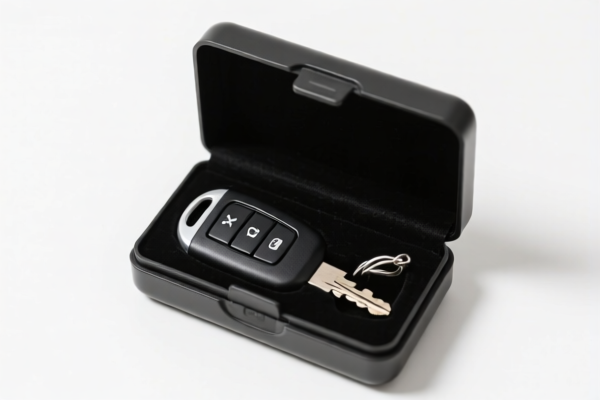| HS Code | Official Doc | Tariff Rate | Origin | Destination | Effective Date |
|---|---|---|---|---|---|
| 3926909989 | Doc | 42.8% | CN | US | 2025-05-12 |
| 3901909000 | Doc | 61.5% | CN | US | 2025-05-12 |
| 7419801500 | Doc | 58.0% | CN | US | 2025-05-12 |
| 6117809570 | Doc | 52.1% | CN | US | 2025-05-12 |




CAR KEY CASE - HS Code Classification & Customs Guide
Based on the provided item descriptions, here's a breakdown of potential HS code classifications, tax implications, and important considerations for importing "CAR KEY CASES" from China (CN). Please note that the final HS code determination rests with customs officials and depends on the exact characteristics of your product.
Understanding HS Codes
HS (Harmonized System) codes are internationally standardized codes used to classify traded products. They are crucial for determining import duties, taxes, and regulations. The first six digits are generally consistent globally, while additional digits can vary by country.
1. Trunks, Suitcases, Vanity Cases, etc. (Potentially Relevant - HS Code 4202)
- HS Code: 4202 (This is a broad category, and further subheadings would be needed)
- Description: This heading covers articles of a kind normally carried in the pocket or in the handbag, including key cases, wallets, purses, etc., made of leather or composition leather, sheeting of plastics, textile materials, vulcanized fiber, or paperboard.
- Breakdown:
- 42: Articles of leather or of composition leather, animal hair or animal skin.
- 02: Articles of a kind normally carried in the pocket or in the handbag.
- Tax Implications: Tax rates vary significantly based on the material (leather vs. plastic vs. textile). You'll need to determine the primary material of your key cases.
- Important Considerations:
- Material Composition: Is the key case made of genuine leather, synthetic leather (composition leather), plastic, textile, or a combination? This is critical for accurate classification.
- Lining: The material of the lining can also affect classification.
- Hardware: The type of metal hardware used (e.g., zippers, buckles) may have implications.
2. Other Articles of Plastics (HS Code 3926.90.99.89)
- HS Code: 3926.90.99.89
- Description: This code covers other articles of plastics, not elsewhere specified. This could apply if your key case is primarily made of plastic and doesn't fall into more specific plastic categories.
- Breakdown:
- 39: Plastics and articles thereof.
- 26: Other articles of plastics.
- 90: Other.
- 99: Other.
- 89: Other.
- Tax Implications:
- Basic Duty: 5.3%
- Additional Duty: 7.5%
- Post April 2, 2025: Additional Duty increases to 30%
- Total Tax: 42.8%
- Important Considerations:
- Plastic Type: The specific type of plastic used (e.g., PVC, polypropylene) may be relevant.
- Functionality: If the key case has specific features (e.g., RFID blocking), this could affect classification.
3. Polymers of Ethylene (HS Code 3901.90.90.00)
- HS Code: 3901.90.90.00
- Description: This code covers polymers of ethylene in primary forms. This is unlikely to be the correct code for a finished key case, but could apply if you are importing raw plastic pellets to manufacture key cases.
- Breakdown:
- 39: Plastics and articles thereof.
- 01: Polymers of ethylene.
- 90: Other.
- 90: Other.
- 00: Other.
- Tax Implications:
- Basic Duty: 6.5%
- Additional Duty: 25.0%
- Post April 2, 2025: Additional Duty increases to 30%
- Total Tax: 61.5%
- Important Considerations: This code is for raw materials, not finished products.
4. Other Articles of Copper (HS Code 7419.80.15.00)
- HS Code: 7419.80.15.00
- Description: This code covers containers of a kind normally carried on the person, in the pocket or in the handbag, made of copper. This is unlikely unless your key case is primarily made of copper.
- Breakdown:
- 74: Copper and articles thereof.
- 19: Other articles of copper.
- 80: Other.
- 15: Containers of a kind normally carried on the person, in the pocket or in the handbag.
- Tax Implications:
- Basic Duty: 3.0%
- Additional Duty: 25.0%
- Post April 2, 2025: Additional Duty increases to 30%
- Total Tax: 58.0%
- Important Considerations: This code is for copper products.
5. Other Made Up Clothing Accessories (HS Code 6117.80.95.70)
- HS Code: 6117.80.95.70
- Description: This code covers other accessories, not elsewhere specified. This could apply if the key case is considered a clothing accessory.
- Breakdown:
- 61: Articles of apparel and clothing accessories, knitted or crocheted.
- 17: Other made up clothing accessories.
- 80: Other accessories.
- 95: Other.
- 70: Other.
- Tax Implications:
- Basic Duty: 14.6%
- Additional Duty: 7.5%
- Post April 2, 2025: Additional Duty increases to 30%
- Total Tax: 52.1%
- Important Considerations: This code is for clothing accessories.
Recommendations:
- Material is Key: The primary material of your key case is the most important factor in determining the correct HS code.
- Detailed Description: Provide a very detailed description of your key case to customs, including all materials used, dimensions, weight, and functionality.
- Consult a Customs Broker: It is highly recommended to consult with a licensed customs broker in China and in your country of import. They can provide expert guidance and ensure accurate classification.
- Official Ruling: If you are unsure, consider applying for an official binding ruling from your customs authority.
- Check April 2, 2025 Changes: Be aware of the upcoming changes to additional duties on April 2, 2025.
- Certifications: Depending on the materials used (e.g., lead content in plastics), you may need to provide certifications to demonstrate compliance with import regulations.
Disclaimer: This information is for general guidance only and does not constitute professional customs advice. Always consult with qualified professionals for specific advice tailored to your situation.
Customer Reviews
I really appreciated the note about consulting a customs broker. It's easy to get lost in the details, and this reminder was timely and helpful.
The image gallery was helpful in visualizing the product. It made it easier to cross-reference with the HS code descriptions.
The detailed explanation of the 6117809570 code was incredibly useful. I never thought my key case could fall under clothing accessories, but it's good to know the options.
The page gave a lot of HS codes, but I found it a bit overwhelming. It would be better if there was a filter to narrow down by material type.
I was confused about the difference between HS codes for raw materials and finished products. The section on 3901909000 helped me clarify that I was importing finished goods, not raw plastic.